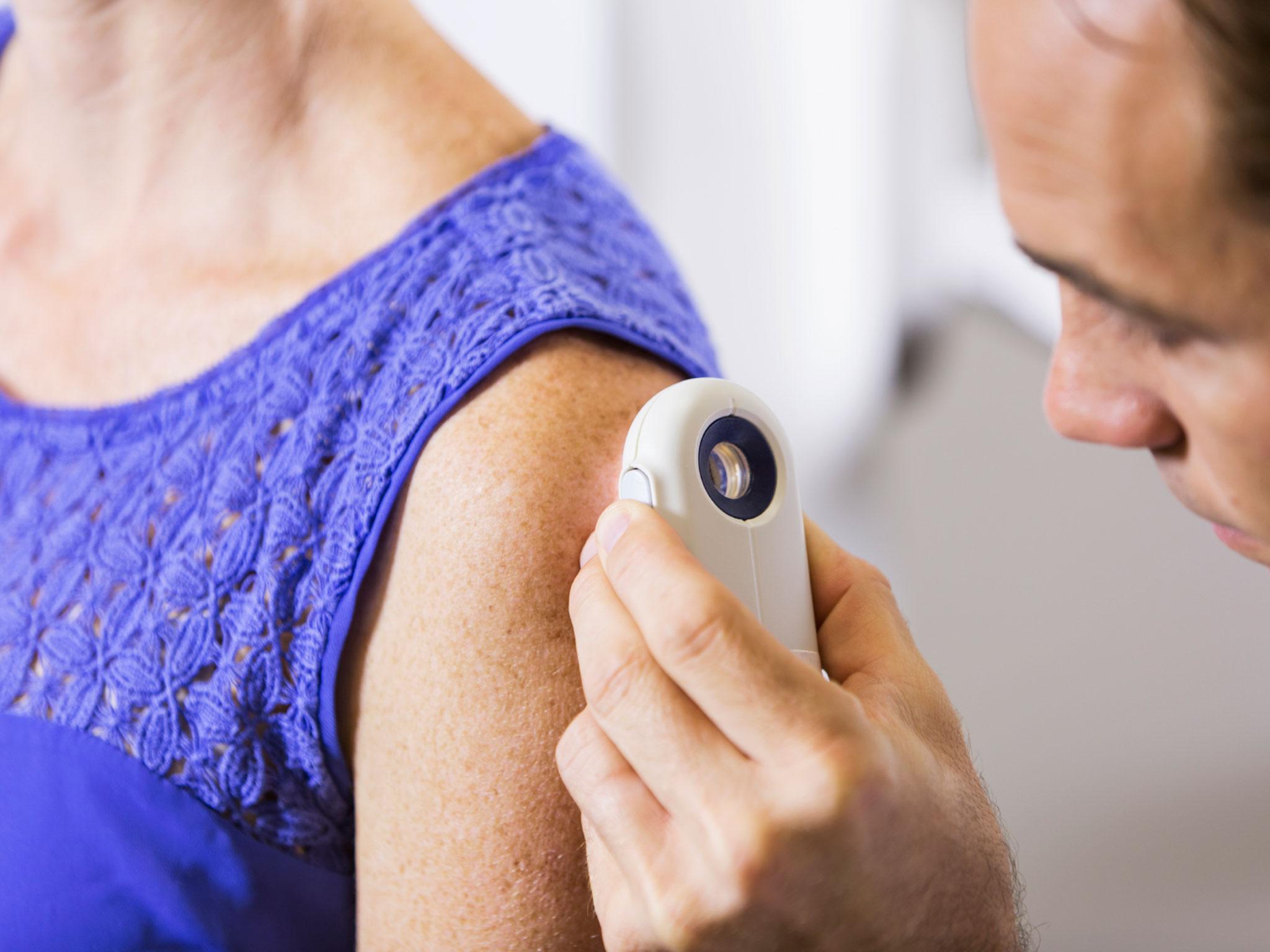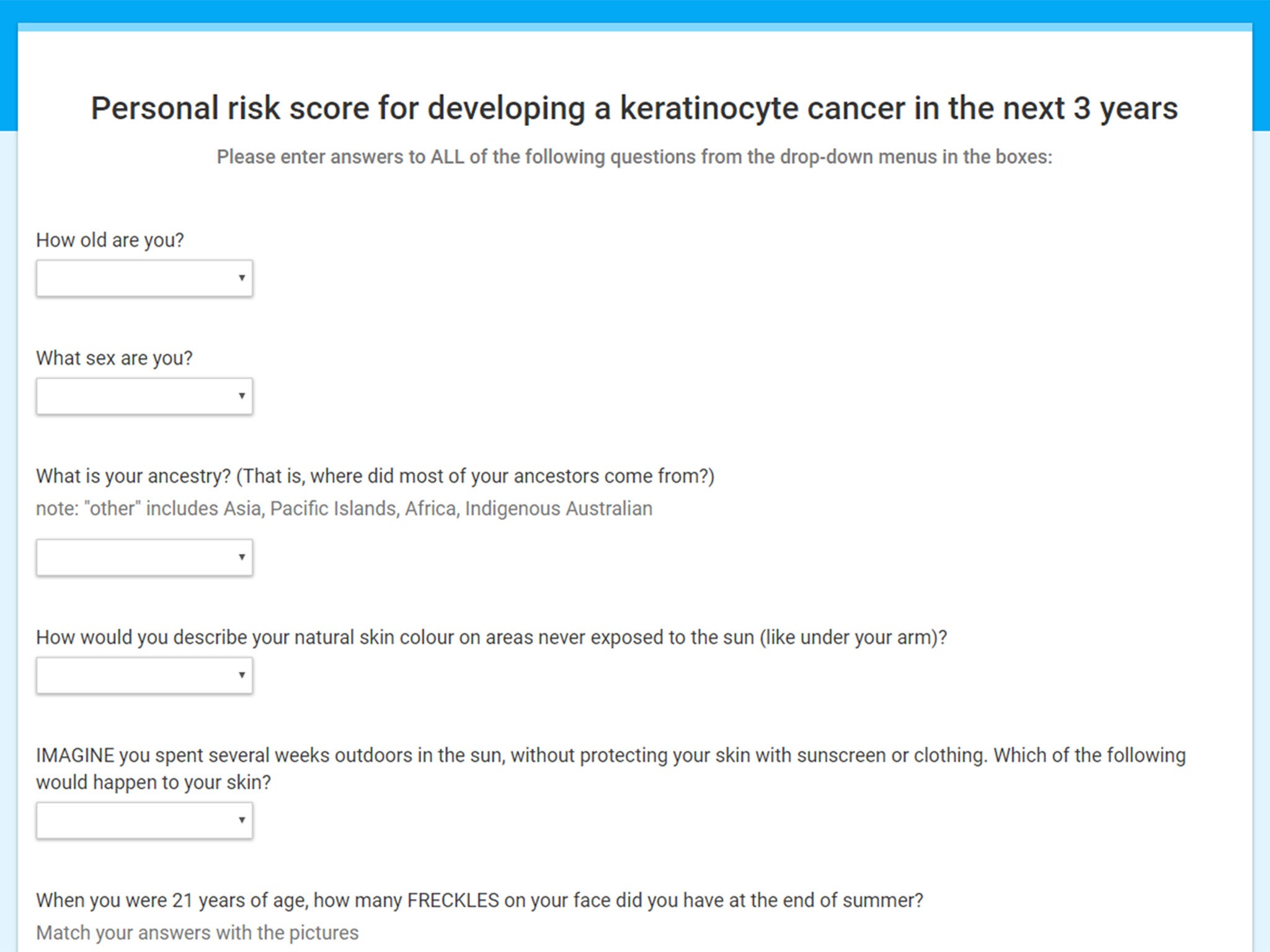New online test predicts skin cancer risk
Experts have created a simple quiz to identify a person's chance of developing the disease

Your support helps us to tell the story
From reproductive rights to climate change to Big Tech, The Independent is on the ground when the story is developing. Whether it's investigating the financials of Elon Musk's pro-Trump PAC or producing our latest documentary, 'The A Word', which shines a light on the American women fighting for reproductive rights, we know how important it is to parse out the facts from the messaging.
At such a critical moment in US history, we need reporters on the ground. Your donation allows us to keep sending journalists to speak to both sides of the story.
The Independent is trusted by Americans across the entire political spectrum. And unlike many other quality news outlets, we choose not to lock Americans out of our reporting and analysis with paywalls. We believe quality journalism should be available to everyone, paid for by those who can afford it.
Your support makes all the difference.Health experts have created a new online tool which can predict a person’s risk of developing a common form of skin cancer.
The tool uses the results of a 10-question-quiz to estimate the chance of a person aged 40 or over of having non-melanoma skin cancers within three years.
Factors including the age, gender, smoking status, skin colour, tanning ability, freckling tendency, and other aspects of medical history are covered by the quiz.
Scientists at Australia’s QIMR Berghofer research institute created the tool by using data from almost 39,000 people aged between 40 and 70-years-old.
However, Professor David Whiteman, who lead the team which created the tool, stressed: “Members of the public need to be aware that this tool is not a substitute for visiting a doctor or skin cancer clinic.”

He added that it should be used as a general guide.
“If the tool indicates that you have a high risk of skin cancer, we strongly encourage you to visit your doctor,” he said.
He went on to advise users to take precautions to avoid skin cancer by keeping out of the sun during the hottest part of the day, wearing a hat and protective clothing, and using SPF sunblock.
The test can identify the risk of developing basal cell carcinomas (BCCs) and squamous cell carcinomas (SCCs), which are the most common cancers in humans.
However, it cannot pick up the risk of melanoma: a highly aggressive cancer that can spread to other parts of the body.
The research behind the test has been published in the ‘Journal of Investigative Dermatology.’
The test follows a similar tool developed to predict if a person has an STI.
Researchers at John Hopkins University created the test to combat the embarrassment surrounding getting tested for STIs.
Join our commenting forum
Join thought-provoking conversations, follow other Independent readers and see their replies
Comments